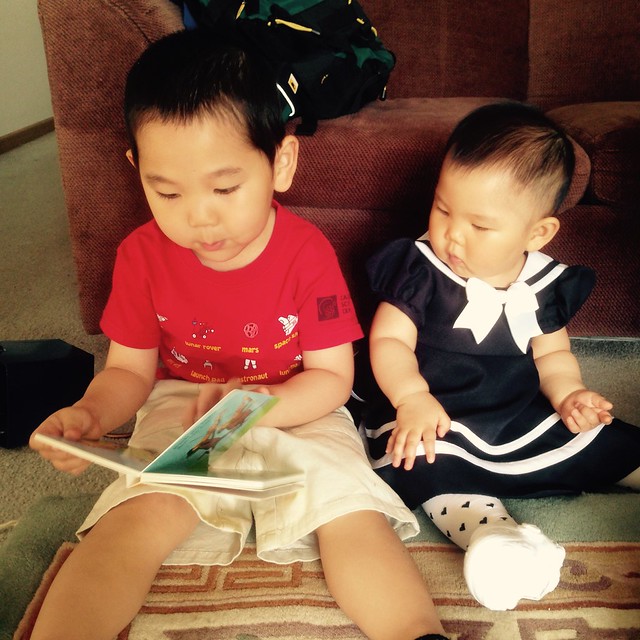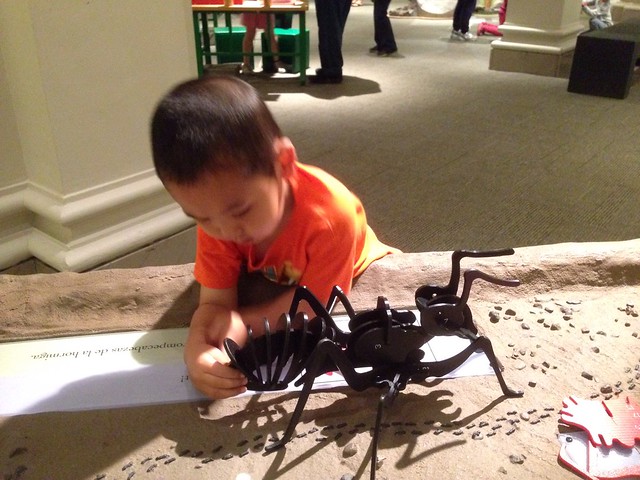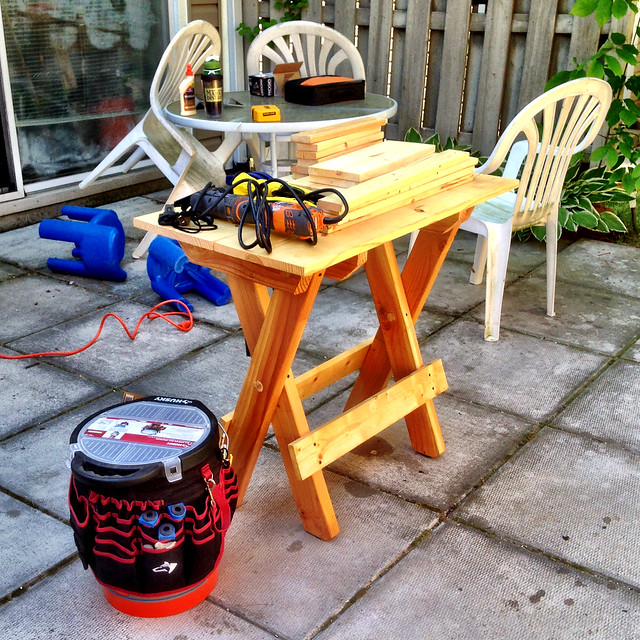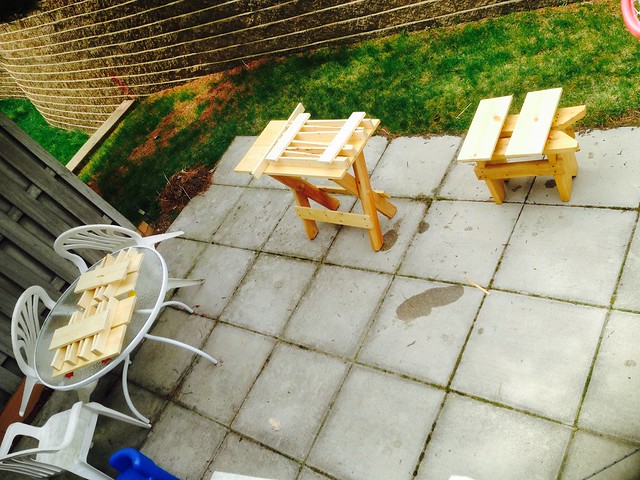We had a rare pure family vacation (meaning the trip did not include visiting friends, family, or other business). With two kids (preschooler and baby) and two grandparents, we went the easy way out and took a trip to a family-friendly all-inclusive resort in Cancun, Mexico. The benefits of an all-inclusive resort is that very little thinking or planning is required. The knock against these sort of things is that they are completely removed from the host area, which is true. But some memories and thoughts:
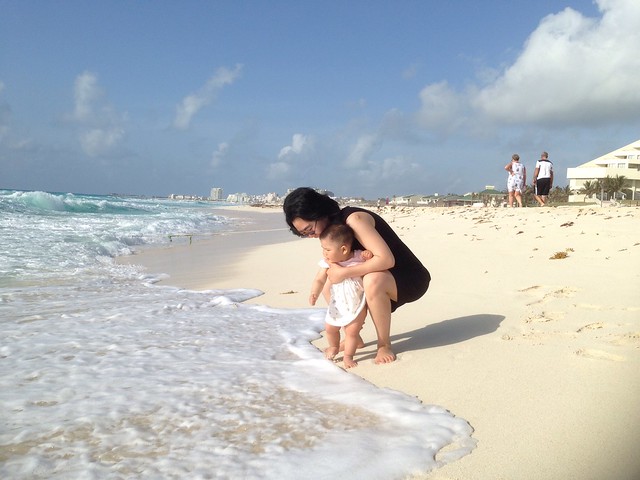 |
| Touching the sea for the first time in Cancun, Mexico |
1. Using an all-inclusive resort made it possible to have a vacation while we are caring for two grandparents, and two small children. No worries about getting food, everything is in short walking distance, and we don't have to worry about getting lost in the general traffic of everyday life. And right now, that is important. Someday, when T and A are older and going to different cities is meaningful, we will have that kind of vacation.
2. We think that most of the staff are recruited from Quintana Roo>. And a large fraction of the guests were Mexican. So the resort we were at was not a Little America that I thought that these places would be. We had T do greetings and simple questions in Spanish (e.g. hola, buenos dias, buenos tardes, __ por favor, donde es ___, gracias, de nada, numbers) And staff responded properly to a four year old American using Spanish. For T, who learns Spanish in pre-school, that means that he experienced hearing and using Spanish as a working language, not a memorization exercise that pre-school Spanish is. Bonus, there were a couple of times when S and T were interacting with housekeeping (which were not generally bilingual) and T knew just enough Spanish to get the point across.
3. We provided the staff great amusement with my high-school Spanish. Sometimes, when the staff recognized me (or T) we would have our entire exchange in Spanish. We noticed this would happen when there was another staff observing in surprise, and the staff we interacted it would give them an amused smile at their surprise. This has the obvious implication that if my not-significantly-different-from-zero Spanish was cause of notice and amusement, the typical level of Spanish for an American is actually zero.
4. T is still the very cautious and generally shy self. He had a few scary (for a four year old) experiences over the trip. He slipped and got stuck on a bunk bed ladder, he got turned on a water slide and went underwater, and he was on a jetski (being used as a lighter to another boat) punching its way through waves and up on a beach. So we had many conversations on how being brave was doing things that were scary, and not stopping even when things go wrong.
5. For both T and A, the best part of the trip is clearly the fact that they had mommy and daddy close at hand for large parts of every day. Frankly, they would have enjoyed this if we stayed at home too. But they also saw us interacting with the hotel staff. And (especially since we were trying to get T to practice his Spanish) doing so with courtesy, even when there were problems with the room and travel. (ok, if you asked T, he probably would say that parasailing and always-available ice cream were pretty significant too.)
6. A is a very expressive one-year old. That means she babbles, dances, looks at people, and acts and speaks with intent. Very clear and specific intent. In a one-year old, this is seriously cute (and we hope this means we will skip the worst of the tantrum stage). But another part of us thinks that if she is like this now, just wait until she actually has language skills. As I recall, in daycare, there was a clear hierarchy based on who had language skills (they could communicate with each other, and communicate their desires to the teachers). T was on the bottom end of this until he was 3 1/2 or so. A is going to be at the upper end.
7. T definitely recognized that he has to compete for attention. And it is very hard to compete for attention with an expressive one-year old. Especially when you are naturally an introvert. Knowing a little bit of Spanish helped in this weekend with the staff and the other Mexican guests, a preschooler trying to speak a second language is pretty cute too.
8. We somehow chose a resort that was also hosting a Korean church conference.That was something you don't experience on the average vacation.
9. Grandpa and T (and daddy) went parasailing (which involved using a jetski to get to and from the boat). Grandpa was very happy at this little adventure.
We are glad we did this. Grandparents can probably only do this for a limited number of years, and the kids are not in a position to appreciate anything more complex. When our kids get older, they will better appreciate things that are more complex, more adventurous, or more immersive. But this is a good start.
